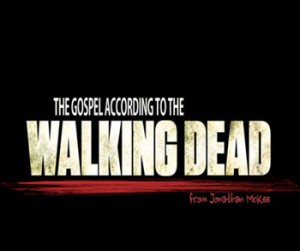If you are like me you are sick of hearing about this topic. But that begs the question: is bullying becoming a bigger problem within our culture, or does the media just sensationalize it because it is the topic du jour? If it is increasing maybe one reason is the constraints that political correctness forces upon young males.
Perhaps because our culture has somehow minimized (or even demonized) the majestic qualities of manhood, many of our boys today seem a bit softer, perhaps more feminized, than in the past. They seem a bit gun-shy—with a deer in the headlights look about them. They stay in puberty longer and delay launching into manhood later than their predecessors. (Why become a man when being a man is bad?) Others, perhaps because they have been caused to be ashamed of being a male, overcompensate by acting out in dramatic caricatures of manhood—they are overly macho, violent, and sexually promiscuous.
Young men today also have a certain amount of repressed anger. This may contribute to the seeming increase in bullying in schools, but also in a more escalated level or degree of violence among young males. This is possibly caused by not allowing young males to solve their social issues as they have for thousands of years—on their own. In the past when two young males disagreed about something, they went to the playground and tussled around until one or the other acceded. Generally they both just got too tired to continue and quit. They then shook hands and forgot about it. In fact, many boys I fought with went on to become my good friends. Today, however, with adult interference, boys are not allowed to solve their own problems. They are taught that any kind of aggression or (gasp) violence is bad. So they are forced to repress those feelings of disrespect, humiliation, and injustice, which eventually cause those feelings to fester into frustration, anger, resentment, and bitterness—far more powerful emotions than they were originally faced with. Eventually those powerful repressed emotions spill over and explode into greater levels of violence evidenced by the shootings and stabbings we see of young men across the country.
A big mistake that our culture currently makes with boys is that we unconsciously combine aggression and violence into one behavior. From a males’ perspective the two are not the same. Boys and men see aggression as useful—it is constructive of the self. Violence is just the opposite—it is destructive. So when our schools, courts, and social service workers confuse the two it does a disservice to boys who actually need aggression in many areas of their life. Our culture just generally assumes now that the more feminized traits like being quiet, sitting down, being contemplative, and nurturing are the right way to act, and the more masculine traits like anger, aggression, confrontation, and one-upmanship are wrong—in every circumstance! That’s not true and does a great disservice to our boys. There are times when it is appropriate to be angry and confrontational instead of passive or gentle.
Our schools and culture’s knee-jerk response to male violence (or even just natural aggression) of establishing a “no tolerance” policy has probably been more detrimental than helpful to young males. (If there is any question that our public educational system has been “feminized” we need look no further than this policy.) One reason is because it’s actually less frightening for a male to “act out” (physically fight) when he feels threatened than it is to have the self-control to face the issue head on. So for instance when a boy gets made fun of on the playground, his sense of honor requires him to respond. But perhaps because he does not have the maturity or coping skills to understand that the more mature thing to do would be to confront his attackers in a non-violent way, he responds emotionally and strikes back. When we condemn his action or response as being “bad” we send the message that his honor is not worth fighting for. And yet he has an innate ego response mechanism that causes him to seek justice when he is disrespected. To not allow him to respond or to require he get someone else (like an adult female) to advocate for him tells him he is powerless, disrespected, and dishonorable. Respect is a key attribute of the core of a male’s psyche. When he does not feel respected or is allowed to be disrespected without recourse, it rots his pride and weakens his level of self-respect.
I’m not promoting that we should teach young males that violence is the way to solve problems. But the myth that “violence never solved anything” is just that, a myth. Violence solves lots of problems—especially violent problems. If someone is trying to murder your wife and children, appealing to their sense of compassion is probably not a good strategy to stop them.
Back in the “old days” when a gym teacher had two boys who had problems with each other (which is inevitable) he put boxing gloves on them both and told them to settle their differences in a supervised environment. Afterward, they were made to shake hands and moved on. Even in the most adversarial unsupervised playground scuffle seldom was anyone injured beyond a bloody nose. Males always respect their opponent after doing battle with one another and frequently become good friends because of the respect they earn for one another. We did not see the problems then that we face today with high levels of violence and the killing of our young men.
However, our more feminized world of total tolerance does not allow a young man to seek justice, which causes him to be resentful and angry. Males are taught it is bad to fight or even be aggressive over any insult no matter how egregious the offense. This frustrates their sense of justice.
Again, I’m not promoting violence, bullying, or unchecked aggression, but this kind of “feminization” of young males not only results in a more intensified level of aggression, but also produces passive men who often internalize this anger and frustration, which then manifests itself in passive-aggressive behavior, which can be just as destructive.
I watched this play out with a group of young males at the local high school the other day. Their horse-playing was becoming somewhat aggressive as young men are wont to do. Several teachers observed this and sounded the alarm that a “fight” was about to happen. This, of course, got all the adults in a dither, running around the building, sounding the alarm. It was obvious from the boys’ reaction to this that they enjoyed the control they gained over the adults who were responding to their “gang fight.” You could virtually see the gears turning in their heads as they somewhat tongue-in-cheek continued the escapades until the teachers and administration had worked themselves into a near panic, at which point the boys quietly disappeared into the sunset with smirks on their faces.
We do our boys a disservice when we do not allow them a certain amount of aggression and autonomy in solving their own social problems. Males are physical beings—they solve problems through action, not by talking about their feelings. (Frankly, to talk about your feelings after having had your honor disparaged does not seem like adequate recompense.) Males often bond with one another through aggression. This means males are biologically wired to be more physically active, more aggressive, and more likely to need physical activity to blow off emotional stress.
Want to stop bullying? If we want to eliminate physical aggression and fights with young males, find physical competitions or other direct challenges for them to engage in when they have issues with each other. This teaches them to be true warriors who use their power to lift up others, rather than becoming bullies who abuse those weaker than they are.
Gleaned from Rick’s newest book, A Man in the Making: Strategies to Help Your Son Succeed in Life, by Revell.











